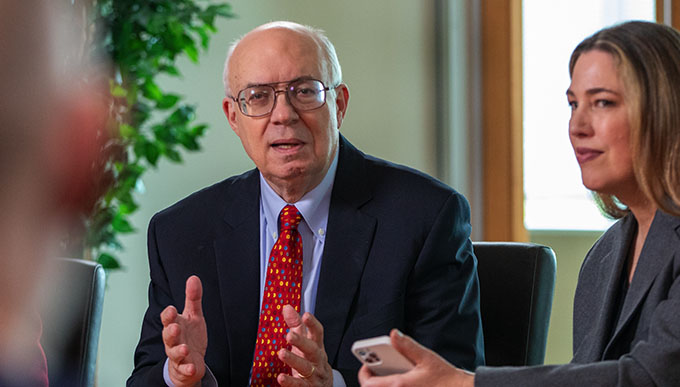
Joe’s Record On
Technology


“It doesn’t happen overnight. But there’s a steady erosion of our right to privacy. If we wait to care about privacy, it’ll probably be too late. I believe we can keep the public safe and respect the public’s privacy and due process rights. In fact, I believe we’re obligated to do both.”
— Joe Simitian
Joe’s ability to anticipate and solve problems is unmatched. He anticipated the dangers of distracted driving, the potential loss of privacy with surveillance technology and the need to keep consumers informed about data breaches. He authored legislation to address all of these concerns before they got out of hand.
In the age of AI, Joe will take the lead in passing legislation that ensures that people’s privacy is respected and their jobs are protected while still fostering innovation.
Joe Protects Consumer Data
Joe’s first-in-the-nation data privacy law required companies to notify California consumers about online data breaches – and was the model for similar legislation that has been adopted in all 50 states.
Joe Anticipates Dangers of Technology
Joe anticipated that cell phones would distract drivers. He authored and got California’s hands-free cell phone law passed which saves 700 lives in California every year and has been replicated throughout the country.
Joe Protects Civil Liberties and Privacy
Increasingly, governments are buying technology and surveillance tools to assist law enforcement. Joe successfully advocated for a framework that analyzes the privacy implications of the technology for citizens and requires the submission of a use policy for that technology before seeking funding approval for purchase from elected officials. The Guardian newspaper calls Joe “Silicon Valley’s surveillance technology watchdog.”
Joe Ensures Your Personal Data Is Safe
Governments collect all kinds of records – health, criminal, home and more. It is incumbent that governments protect this data. Joe urged Santa Clara County to become a Privacy Center of Excellence to secure data from outside breaches or internal mishandling. Under the program, the County established its first Privacy Office and hired its first Chief Privacy Officer.
Joe Advocates for Net Neutrality
When the Federal Communications Commission under the Trump Administration rolled back net neutrality regulations, Joe, with the Board of Supervisors, asserted Santa Clara County’s position with the FCC. Joe believes Internet Service Providers should not be able to economically benefit from limiting the speed at which users access information on the web.